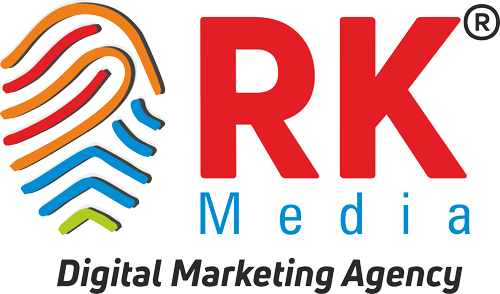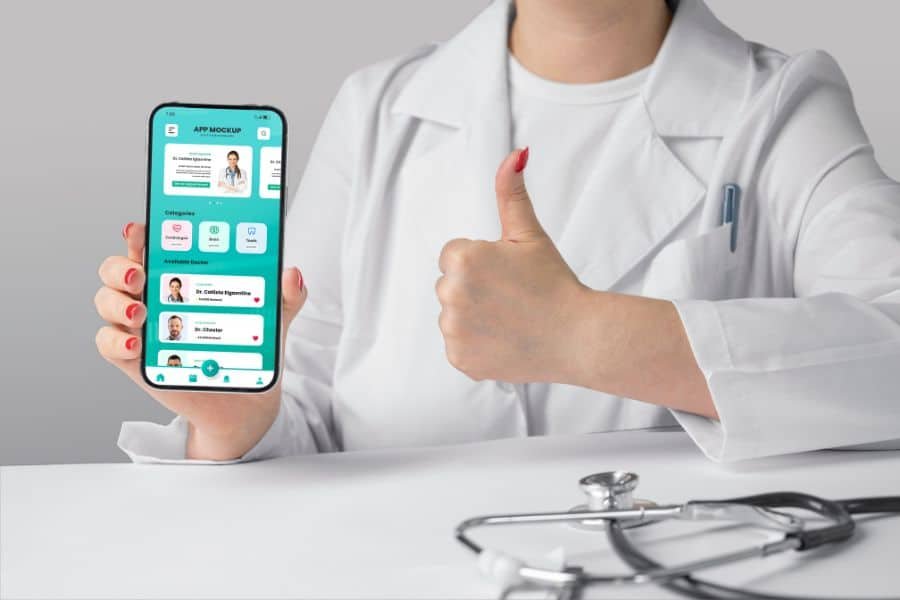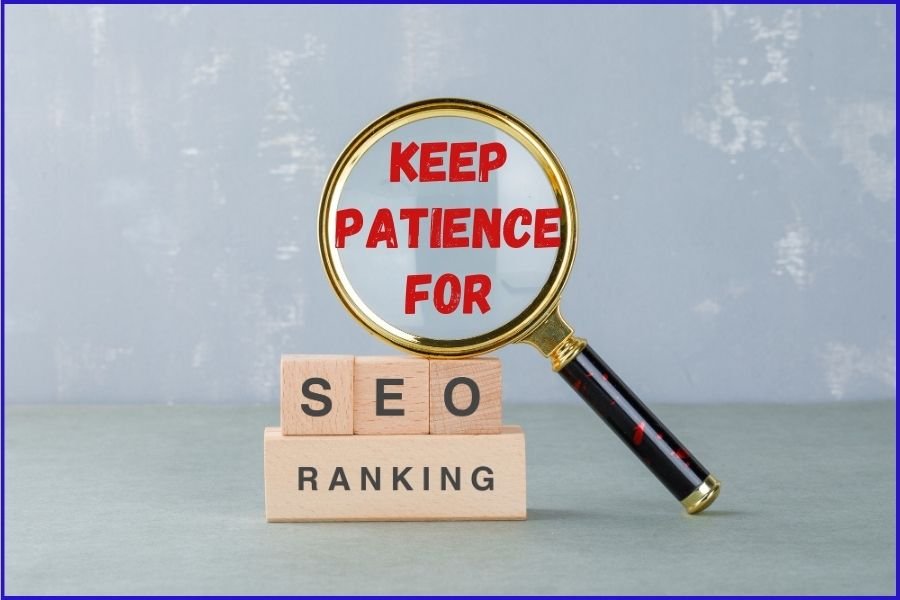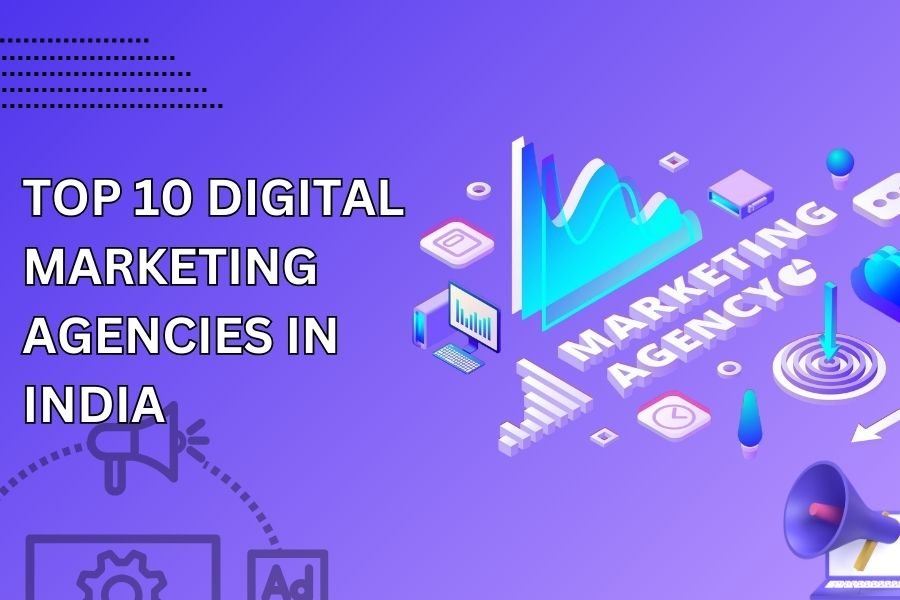Innovative Digital Marketing Strategies for Healthcare Startups
Introduction

In a rapidly evolving digital landscape, the healthcare industry is no exception when it comes to adopting innovative digital marketing strategies. Healthcare startups, in particular, face unique challenges and opportunities in the realm of digital marketing. These challenges stem from regulatory constraints, the need for patient trust, and the growing demand for healthcare services. However, healthcare startups can also leverage the power of digital marketing to reach their target audience effectively.
In this blog, we will explore some innovative digital marketing strategies that healthcare startups can utilize to build a strong online presence, enhance patient engagement, and ultimately, succeed in the healthcare industry.
Importance of Digital Marketing for Healthcare Startups
In an era where information is readily accessible, consumers, including patients, are increasingly turning to digital channels to research healthcare options, seek medical advice, and make informed decisions about their health. Healthcare startups must recognize and harness the power of digital marketing for several compelling reasons.
Firstly, digital marketing helps healthcare startups establish a strong online presence. A well-designed website, engaging social media profiles, and informative content contribute to building brand awareness and credibility. This online visibility is crucial in a competitive industry where trust and reputation are paramount.
Secondly, digital marketing provides an avenue for healthcare startups to connect with their target audience directly. By tailoring content and advertising to specific demographics, startups can engage with potential patients, healthcare providers, and partners, fostering meaningful relationships and trust.
Healthcare startups can utilize digital marketing to educate the public about their innovative solutions. Informative blog posts, videos, and social media campaigns can explain complex healthcare technologies or services in accessible ways, empowering patients to make informed decisions and encouraging healthcare professionals to adopt new tools.
Challenges Faced by Healthcare Startups
Regulatory Hurdles
The healthcare industry is renowned for its complex and ever-evolving regulatory landscape. Healthcare startups must navigate a web of rules, standards, and compliance requirements that can vary from one region to another. These regulations often encompass areas such as data security, patient privacy, medical billing, and the use of emerging technologies in healthcare.
Startups need to ensure they adhere to regulatory standards while still pushing the boundaries of healthcare technology. This requires a deep understanding of healthcare laws and a proactive approach to compliance management.
The challenge here lies in striking a balance between compliance and innovation. Startups need to ensure they adhere to regulatory standards while still pushing the boundaries of healthcare technology. This requires a deep understanding of healthcare laws and a proactive approach to compliance management.
Building Trust
Trust is a cornerstone of the healthcare industry. Patients entrust healthcare providers with their most sensitive and personal information, making trust an essential element in the patient-provider relationship. Established healthcare institutions often have decades, if not centuries, of history to build upon, showcasing their track record and reliability.
To overcome this challenge, healthcare startups must establish themselves as credible and reliable sources of healthcare solutions. This can be achieved by showcasing qualifications, certifications, and the expertise of the team. Sharing success stories and testimonials from satisfied patients can also go a long way in building trust. Additionally, being transparent about data security and compliance efforts can reassure patients that their sensitive information is in safe hands.
Competition
Healthcare startups face fierce competition not only from these giants but also from other innovative startups with similar objectives. Competing in this crowded landscape is a significant challenge, as startups need to find ways to differentiate themselves and demonstrate their unique value to patients.
To stand out, healthcare startups need to focus on their unique selling points (USPs). This could be a novel approach to treatment, cutting-edge technology, a patient-centric approach, or a commitment to providing affordable healthcare. By clearly defining their USPs and effectively communicating them through digital marketing, startups can capture the attention of potential patients.
Data Security
The protection of patient data is a critical challenge for healthcare startups. The consequences of a data breach in healthcare can be severe, both in terms of legal ramifications and damage to a startup’s reputation.
Healthcare startups need to allocate significant resources to data security, which includes encryption, secure storage, access controls, and staff training on data protection. Regular security audits and vulnerability assessments are essential to maintain the integrity of patient information. Implementing robust data security measures is not just a regulatory requirement; it’s a fundamental aspect of earning patient trust and maintaining the reputation of the startup.
Patient Engagement
Patient engagement is essential for both the well-being of the patient and the success of the healthcare provider. However, healthcare startups often struggle to find innovative ways to engage patients, especially in a digital age where attention spans are short. Effective patient engagement goes beyond just offering medical services; it involves educating and involving patients in their healthcare journey.
Healthcare startups can address this challenge by leveraging digital marketing to create interactive and informative content. This could include patient education materials, interactive apps, and telehealth services. Encouraging patients to actively participate in their healthcare decisions and providing a seamless digital experience can lead to improved patient engagement.
Marketing Tactics for Healthcare Startups Success in the Digital Realm
Content Marketing for Healthcare Startups
Blogging: Educating and Informing Your Audience
One of the foundational pillars of content marketing is blogging. For healthcare startups, this is an opportunity to establish thought leadership and provide valuable insights. By creating informative and educational blog posts, startups can address common health concerns, share the latest industry trends, and showcase their expertise.
By consistently offering valuable content, startups can position themselves as trusted sources of information in their niche.
Creating Informative Videos and Webinars
Video content is an engaging and highly shareable format, making it an excellent choice for healthcare startups. Creating informative videos and webinars allows startups to visually explain complex medical concepts, present case studies, and even introduce their team and facilities.
For example, a telemedicine startup can host webinars about the benefits of virtual consultations or create video guides for patients on how to use their platform.
SEO Strategies to Improve Visibility
Search engine optimization (SEO) plays a critical role in boosting the visibility of your content. Healthcare startups can employ various SEO strategies to improve their search engine rankings, such as keyword research, on-page optimization, and building authoritative backlinks. By aligning your content with the search intent of your target audience, you can attract more organic traffic.
For example, an AI-driven diagnostic startup can optimize its content to rank for relevant medical keywords, ensuring that its innovative solution reaches those in need.
Leveraging Social Media for Healthcare Startups
Choosing the Right Social Media Platforms
Selecting the right social media platforms is crucial for healthcare startups. Different platforms cater to distinct audiences and content styles. Some key considerations include:
- Facebook: Ideal for reaching a broad audience, especially for health awareness campaigns and general healthcare news.
- LinkedIn: Valuable for B2B interactions and networking with healthcare professionals and potential partners.
- Instagram: Great for visually showcasing services, sharing health tips, and connecting with younger demographics.
- Twitter: Ideal for real-time updates, industry news, and engaging in healthcare discussions.
- YouTube: Perfect for hosting educational videos, virtual tours, and patient testimonials.
Sharing Success Stories and Testimonials
In the healthcare industry, trust and credibility are paramount. Sharing success stories and patient testimonials can humanize your brand and build trust. It’s essential to:
- Highlight real patient experiences to demonstrate the quality of care.
- Share before-and-after stories for procedures or treatments.
- Encourage patients to provide video or written testimonials.
Utilizing Paid Advertising on Social Media
Paid advertising on social media platforms can boost your reach and engagement. Consider these strategies:
- Targeted Ads: Use demographic and interest-based targeting to reach the right audience.
- Promote Events: Advertise webinars, health fairs, or virtual care services to maximize attendance.
- Boost Posts: Amplify the reach of important announcements, articles, or videos.
- A/B Testing: Experiment with ad formats, copy, and images to determine what works best.
- Analyze and Optimize: Regularly review the performance of your paid campaigns and refine them for better results.
Email Marketing for Healthcare Startups
Building and Segmenting Email Lists
The foundation of a successful email marketing campaign is a well-structured and segmented email list. Healthcare startups should collect emails through various touchpoints, such as their website, events, and patient interactions. Once collected, these email addresses can be segmented into different categories, including patients, healthcare professionals, and potential clients. This segmentation allows for tailored content and targeted messaging, ensuring that the right message reaches the right audience.
Personalized Email Campaigns
One of the key advantages of email marketing is the ability to deliver highly personalized content. Healthcare startups can send tailored messages to their audience based on their specific needs and preferences. For example, personalized healthcare tips for patients with chronic conditions or updates on the latest medical advancements can create a strong connection with recipients. Personalization not only increases open and click-through rates but also builds trust and credibility.
Nurturing Leads and Patient Relationships
Healthcare startups often face a longer sales cycle due to the sensitive and personal nature of the industry. Email marketing plays a crucial role in nurturing leads and building patient relationships over time. Through a series of well-crafted emails, startups can educate their audience about their services, share success stories, and address common healthcare concerns. By providing value and establishing trust, email marketing helps turn leads into loyal patients.
Influencer Marketing in Healthcare: A Prescription for Success
Identifying and Collaborating with Healthcare Influencers
The first step in successful influencer marketing is to identify influential figures within the healthcare sector. These influencers can be healthcare professionals, specialists, patient advocates, or even healthcare-focused social media personalities. The critical factor is their credibility and the trust they’ve established within the community.
Collaborating with these influencers involves building a mutually beneficial relationship. Healthcare startups can leverage these influencers’ expertise, knowledge, and large following to gain visibility and credibility.
Encouraging Endorsements and Reviews
In the healthcare realm, endorsements and reviews hold immense sway. When a trusted healthcare influencer endorses a product or service, it automatically garners attention and fosters trust. This is especially true for healthcare startups seeking to establish themselves in a competitive market.
Endorsements can take various forms, from video testimonials to written reviews and recommendations on social media platforms. Influencers can share their personal experiences with a startup’s products or services, highlighting the benefits and value they bring to healthcare professionals and patients.
Measuring the Impact of Influencer Marketing
Measuring the effectiveness of influencer marketing in healthcare is vital for assessing the return on investment. It involves tracking key performance indicators (KPIs) such as increased website traffic, engagement metrics, lead generation, and conversion rates. Additionally, feedback from patients and professionals can provide valuable insights into the impact of influencer marketing.
Mobile App Marketing for Healthcare Startups
Creating Awareness and Driving Downloads
One of the initial challenges in mobile app marketing for healthcare startups is making potential users aware of the app’s existence. Here are some strategies to accomplish this:
- Social Media Marketing: Utilize social media platforms to create engaging and informative content about the app’s benefits. Paid advertising on platforms like Facebook and Instagram can be highly effective in reaching your target audience.
- Search Engine Optimization (SEO): Optimize your app’s online presence, ensuring it ranks high on search engine results pages. This will increase visibility and drive organic downloads.
- App Store Optimization (ASO): Craft a compelling app store listing with relevant keywords, an attractive icon, and informative descriptions. Encourage users to leave reviews and ratings.
Enhancing Patient Engagement Through the App
Once users have downloaded the app, it’s crucial to keep them engaged. Here’s how:
- Personalized User Experience: Tailor the app to each user’s needs, offering personalized content, appointment reminders, and relevant health information. Personalization enhances the user experience.
- Telehealth Services: If your app offers telemedicine or virtual care, promote these services prominently. Highlight the convenience and accessibility of online appointments.
- Push Notifications: Use push notifications sparingly to keep users engaged. Send reminders for appointments, medication, or provide health tips to maintain their interest.
Encouraging Feedback and Reviews
Gathering feedback and reviews is essential to improve the app and build trust among potential users. Here’s how to encourage user input:
- In-App Surveys: Include quick surveys to collect feedback on user experience and satisfaction. Address any concerns or issues promptly to enhance user trust.
- Rewards and Incentives: Offer rewards, discounts, or incentives for leaving reviews. This can motivate satisfied users to share their positive experiences.
- Respond to Reviews: Acknowledge both positive and negative reviews and show a commitment to improving the app based on user feedback. This demonstrates responsiveness and a commitment to continuous improvement.
Data-Driven Marketing and Analytics: Powering Healthcare Marketing Excellence
Importance of Data in Healthcare Marketing
Data provides invaluable insights into patient behaviors, preferences, and needs. By analyzing this data, healthcare startups can tailor their marketing campaigns to resonate with their target audience. Here are a few key points highlighting the importance of data in healthcare marketing:
- Personalization: Data allows healthcare organizations to create personalized content and offers for patients, enhancing their overall experience.
- Segmentation: Data segmentation helps in categorizing patients based on demographics, health concerns, or engagement level, enabling more precise targeting.
- Patient Journey Mapping: Understanding the patient’s journey through data enables healthcare startups to intervene at crucial touchpoints.
Utilizing Analytics Tools
Analytics tools are the instruments that enable healthcare marketers to dissect and interpret the data at their disposal. These tools offer a multitude of benefits, including:
- Performance Tracking: Analytics tools help healthcare marketers monitor the performance of their campaigns, allowing them to identify what’s working and what needs improvement.
- User Behavior Analysis: Marketers can gain insights into how patients interact with their website, app, or content, helping them optimize the user experience.
- Conversion Tracking: By tracking conversions, such as appointment bookings or downloads of healthcare resources, organizations can assess the effectiveness of their marketing efforts.
A/B Testing and Optimization
A/B testing is a technique that healthcare marketers employ to assess the impact of different marketing strategies. It involves comparing two versions of a marketing element to determine which one performs better. Here’s why A/B testing is crucial:
- Data-Backed Decision Making: A/B testing is driven by data, allowing healthcare startups to make evidence-based decisions on what resonates most with their audience.
- Continuous Improvement: Regular A/B testing enables ongoing optimization of marketing materials, resulting in improved patient engagement and conversion rates.
Conclusion

At RK Media Digital Marketing Agency, we recognize the unique challenges that healthcare startups face in the digital marketing landscape. We also understand the incredible potential for innovation and impact that these startups represent.
The strategies mentioned in this blog are designed to help healthcare startups overcome the challenges they face and make a significant impact in the industry. By investing in content marketing, social media engagement, video marketing, influencer collaborations, SEO, email marketing, telehealth services, user-generated content, chatbots, AI assistance, and mobile app development, healthcare startups can create a holistic digital marketing plan that resonates with their target audience.
If you’re a healthcare startup seeking guidance and expertise in digital marketing, RK Media Digital Marketing Agency is here to assist you every step of the way. Together, we can build a strong online presence, foster patient engagement, and drive your healthcare startup towards success in this dynamic and transformative industry. Contact us today and let’s embark on this exciting journey together. Your success is our success.
Image Reference: Freepik
Disclaimer: All trademarks, logos, and brand names are the property of their respective owners. All company, product, and service names used in this website are for identification purposes only. Use of these names, trademarks, and brands does not imply endorsement.
